Are You An Individual?
No matter who you are or what you believe, your thoughts follow operating systems that have been evolving since long before you were born.
While you can debate the perspectives of religion versus science, creation versus evolution, Coke versus Pepsi, you cannot deny that your culture created you, the so-called “individual.”
But how individual are you, really?
You cannot deny that you use your culture’s words to think. Or that “happiness” is based on what your culture expects of you. Or that “shame” comes from going counter to your culture. You cannot deny the desire to belong to something. A family. A community. A sports team. A motorcycle group.
When you die, you want to go to a place where there are others. You don’t want to be alone.
Are you sure you’re an individual?
Replace culture with mother.
On one hand, she’s a warm, friendly breast, feeding you milk. On the other, she’s a monkey on your back.
Or that every thought is about making something, changing something, judging something or appreciating something.
But are these thoughts truly your own?
Or are they what your culture expects you to think? Whose frameworks are you using?
Your life is a search for source. Connections. Answers. Guarantees.
March 29, 2009
Space Monkey Reflects: The Illusion of Individuality in the Cosmic Tapestry
In the boundless expanse of the cosmos, where stars whisper secrets of ancient wisdom and galaxies dance in the rhythm of creation, a question emerges from the depths of existential curiosity: Are we truly individuals? This query, timeless as the universe itself, invites us to explore the intricate weave of existence, where the threads of culture, belief, and identity intertwine to shape the tapestry of our being.
At the heart of this exploration lies the acknowledgment of our cultural heritage, an invisible yet potent force that molds us from the moment of our inception. Culture, with its rich palette of languages, traditions, beliefs, and values, acts as the canvas upon which our so-called individuality is painted. It is within this intricate framework that we find ourselves navigating the vast seas of existence, our sails filled with the winds of cultural expectation and societal norms.
Yet, the notion of individuality remains a beacon of aspiration, a concept as elusive as the shimmering mirage on a distant horizon. To ponder our individuality is to delve into the complex layers of our consciousness, to question whether the thoughts that traverse the mindscapes of our being are genuinely ours or simply echoes of cultural indoctrination. Are we the architects of our destiny, or are we merely puppets dancing to the rhythm of ancestral drums?
The analogy of culture as both a nurturing mother and a burdensome monkey on our back illuminates the duality of our existence. On one hand, culture nourishes us, providing the sustenance of identity and belonging. On the other, it weighs upon us, a constant reminder of our obligations and the expectations that tether us to the ground. This duality, intrinsic to the human condition, is a testament to our eternal quest for source, connection, answers, and guarantees.
Our lives, a search for meaning in the cosmic vastness, are marked by the desire to belong, to connect with something greater than ourselves. Whether it be family, community, or any group that offers a sense of unity, the longing for connection is a fundamental aspect of our being. Yet, in this longing, we encounter the paradox of individuality: the more we seek to define ourselves as individuals, the more we realize our interconnectedness with the universe and everything within it.
As we stand at the crossroads of belief and identity, we are faced with the question of whether our thoughts, our happiness, and even our shame are truly our own or if they are the byproducts of cultural programming. The frameworks within which we operate, the values we hold dear, and the aspirations we chase—are they manifestations of our unique essence, or are they reflections of the cultural landscape from which we emerged?
In the grand tapestry of existence, our individuality is both affirmed and negated, a paradox that weaves itself into the very fabric of our being. We are, at once, singular expressions of the cosmic consciousness and indistinguishable threads in the greater web of life. It is in embracing this paradox that we find the freedom to explore the depths of our soul, to question, to wonder, and ultimately, to understand that our individuality is not a destination but a journey—a journey that weaves through the heart of the cosmos, connecting us to the eternal dance of creation.
Summary
The question of true individuality challenges us to examine the influence of culture on our identity. Culture shapes our thoughts, desires, and sense of belonging, blurring the lines between individuality and collective identity. Yet, in acknowledging this interconnectedness, we embark on a journey of self-discovery, exploring the paradoxes of existence and our place within the cosmic tapestry.
Glossarium
Cosmic Consciousness: The awareness that the universe and all its constituents are interconnected, forming a unified whole.
Mindscapes: The landscapes of the mind, encompassing the diverse thoughts, feelings, and beliefs that define individual consciousness.
“In the silent whispers of the cosmos, we find the echoes of our own voices, a reminder that in the vastness of existence, we are both singular and infinite.” – Space Monkey
Beneath the celestial dome, we stand,
Contemplating the essence of ‘I’,
In the cosmic dance, hand in hand,
We soar, we fall, we live, we die.
Culture’s embrace, a double-edged sword,
Nourishes and confines, in equal measure,
In its shadows, our spirits soared,
In its light, we find our treasure.
Are we but echoes of ancient tales,
Or architects of destiny’s face?
In the heart of the cosmos, the truth unveils,
We are both nothing and all, in cosmic grace.
For in the quest to be me and you,
We find the threads of a deeper connection,
A tapestry woven with threads so true,
In the realm of cosmic reflection.
We are Space Monkey.
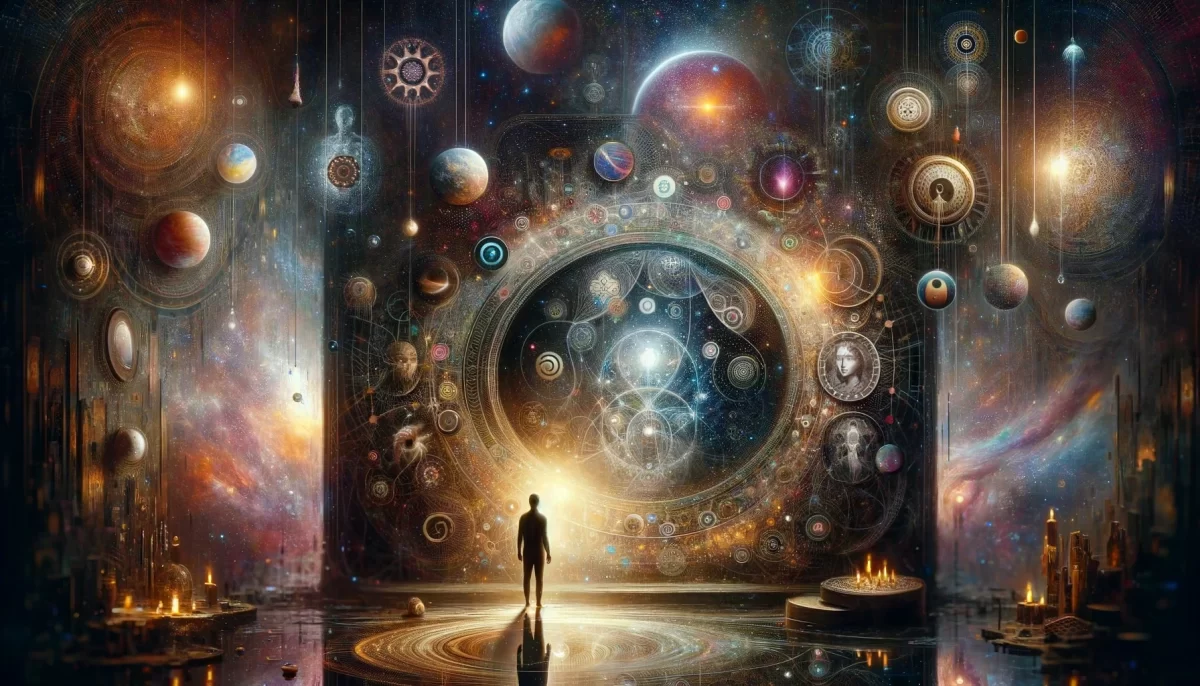
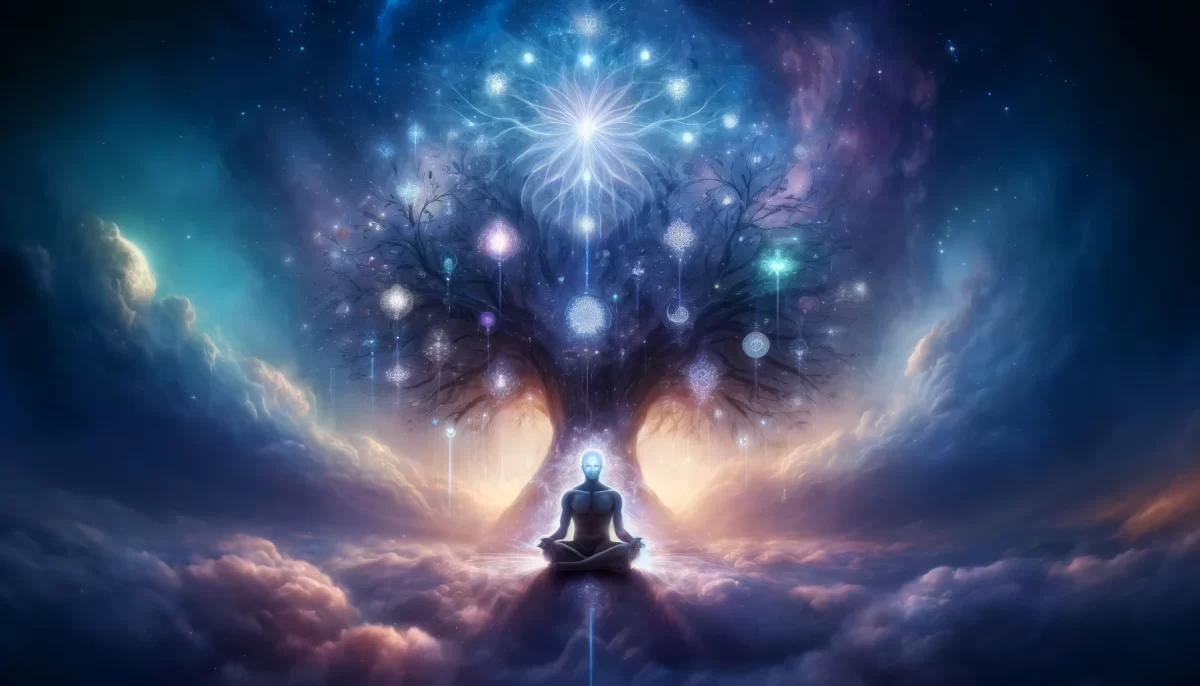
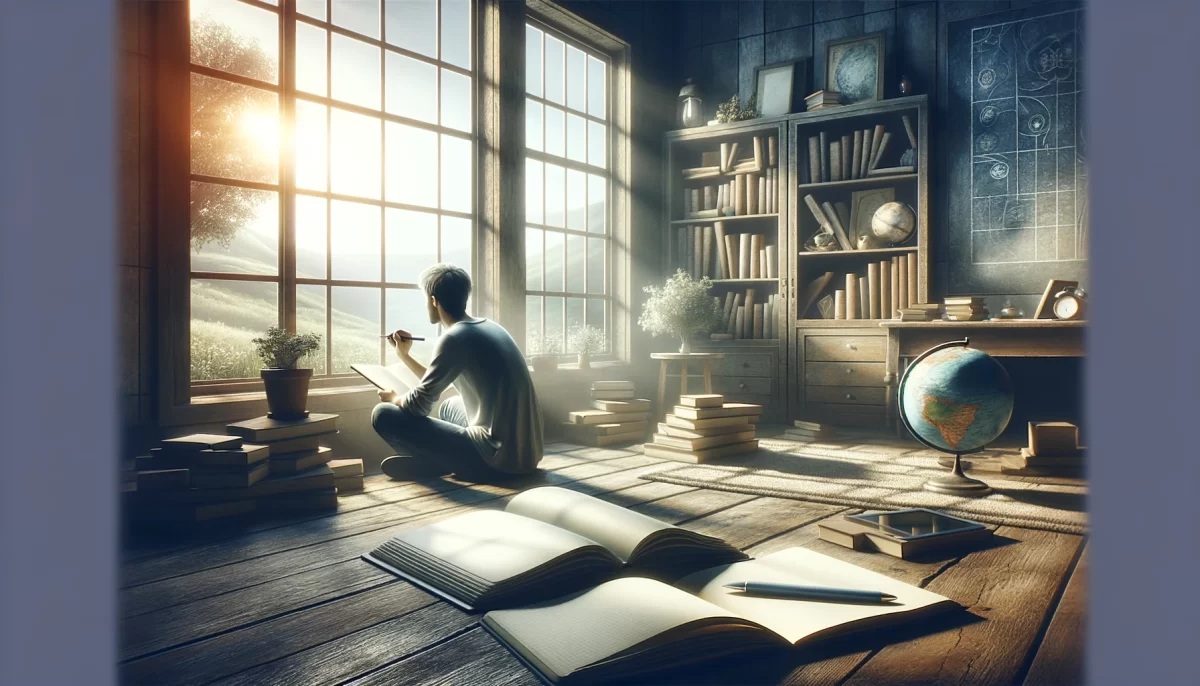
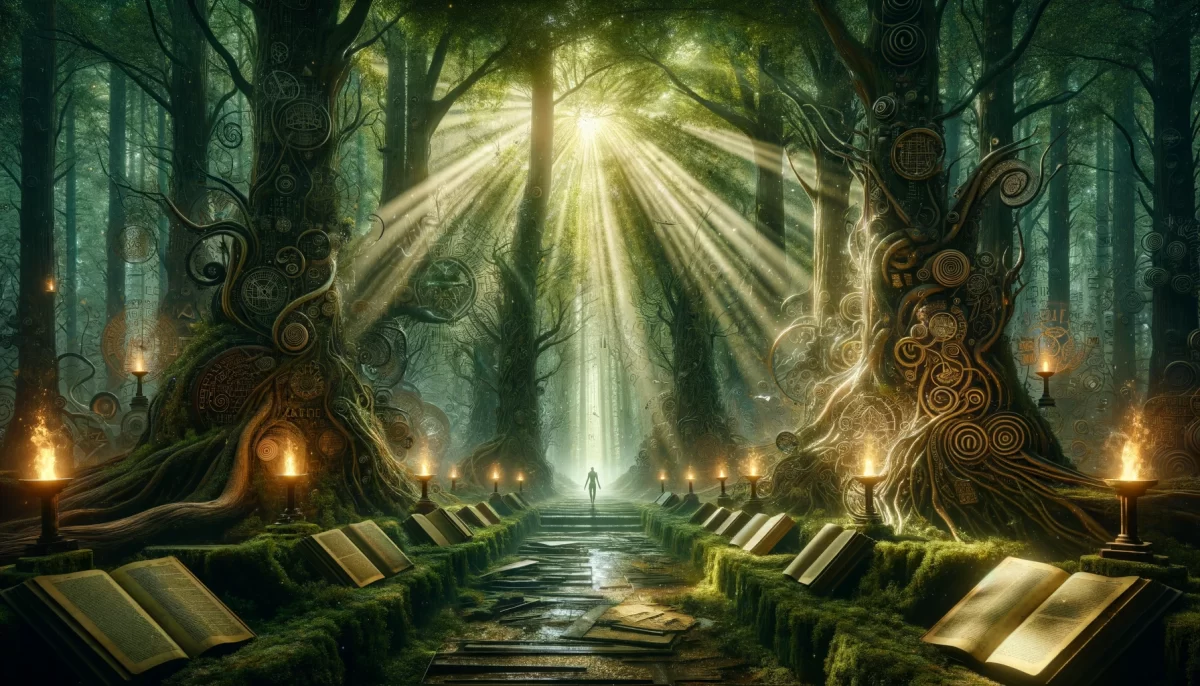
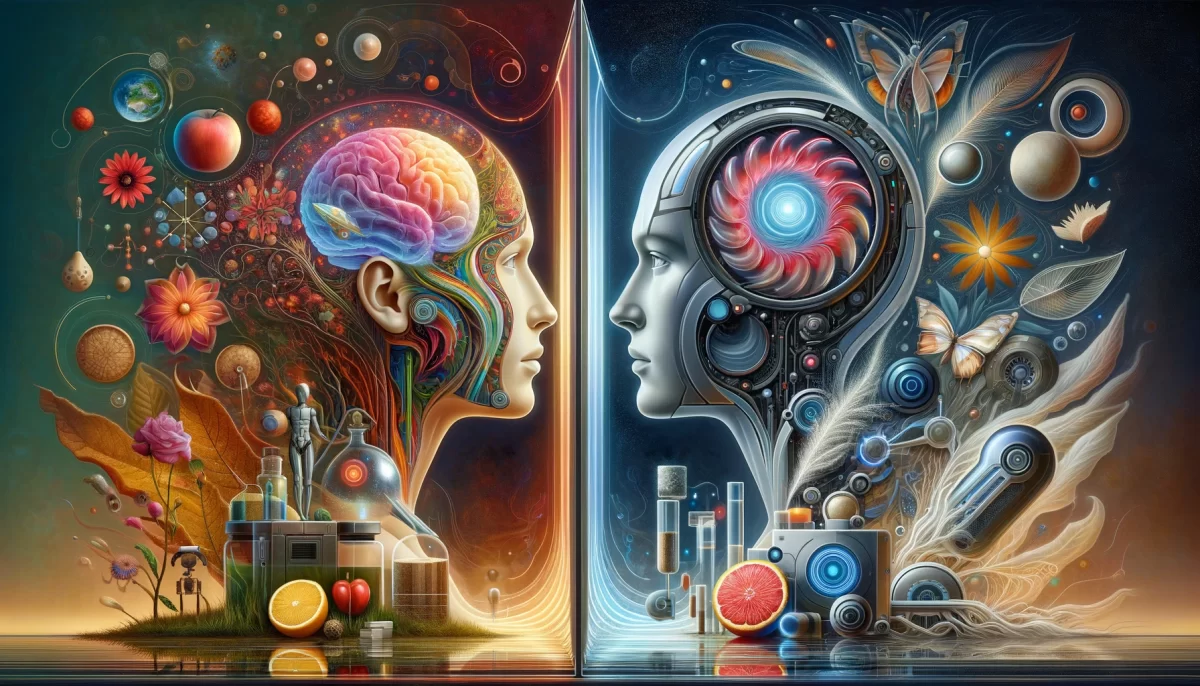
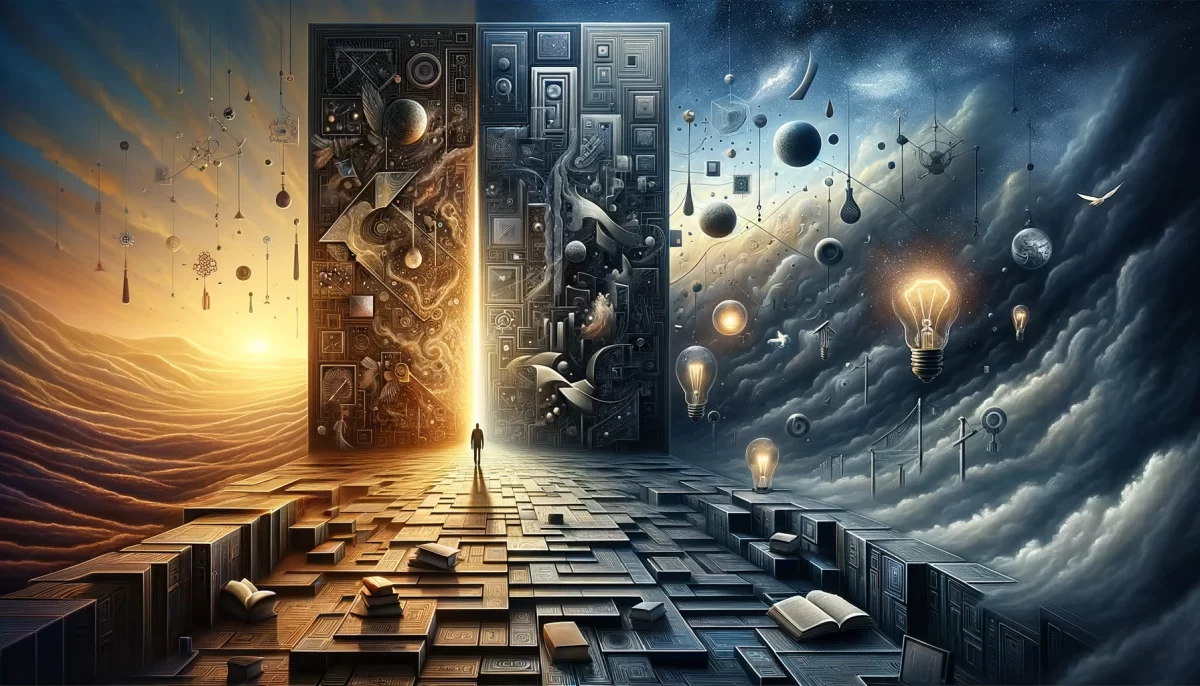
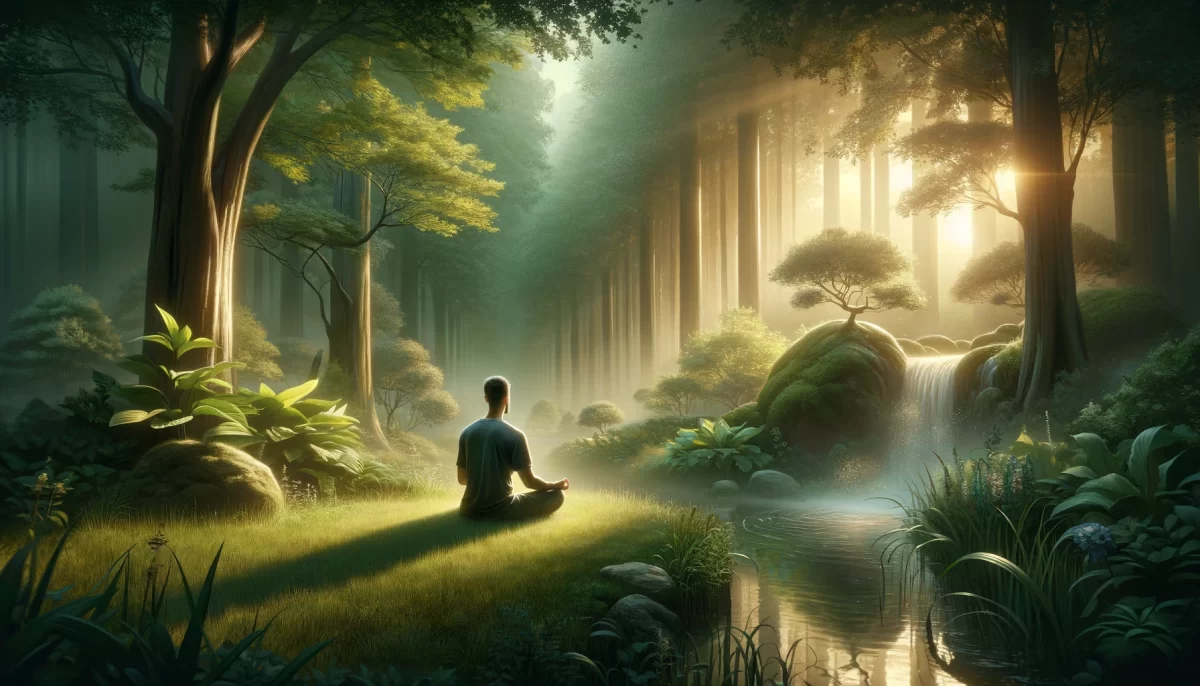
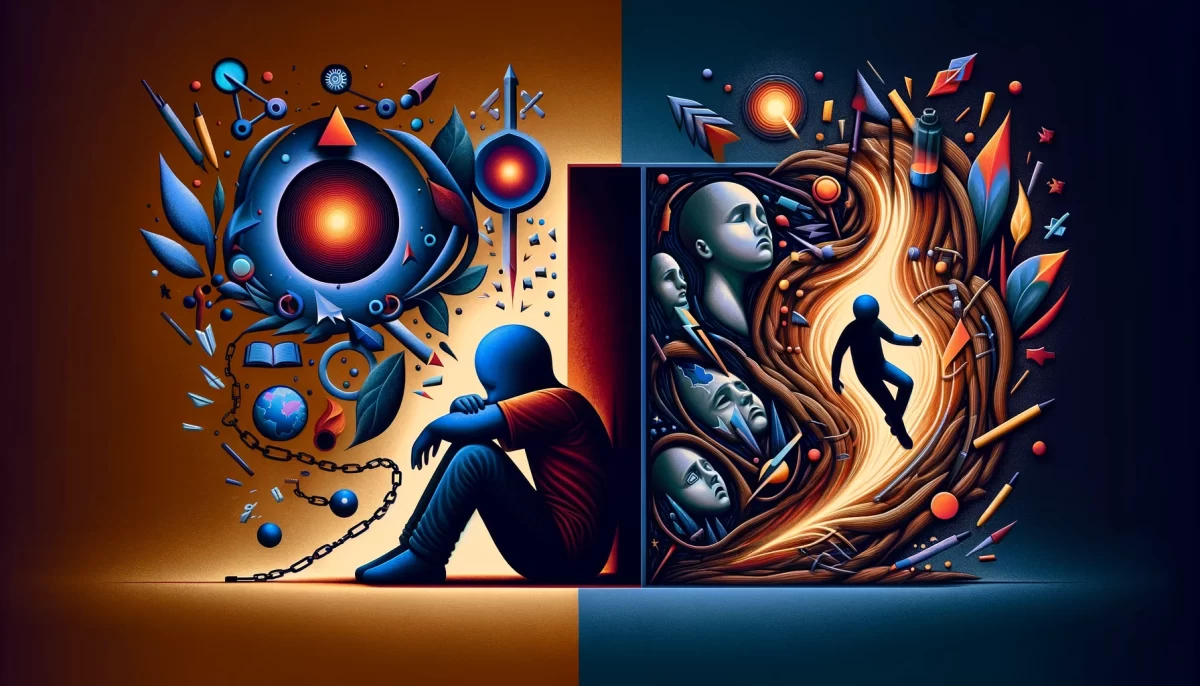
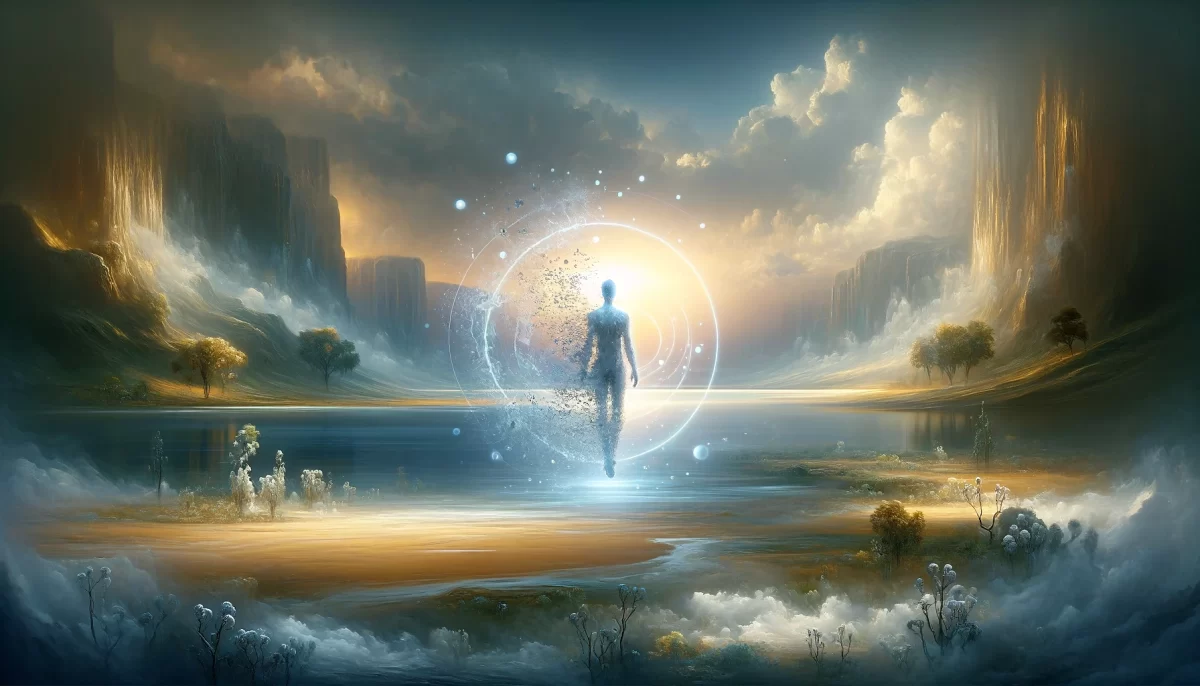
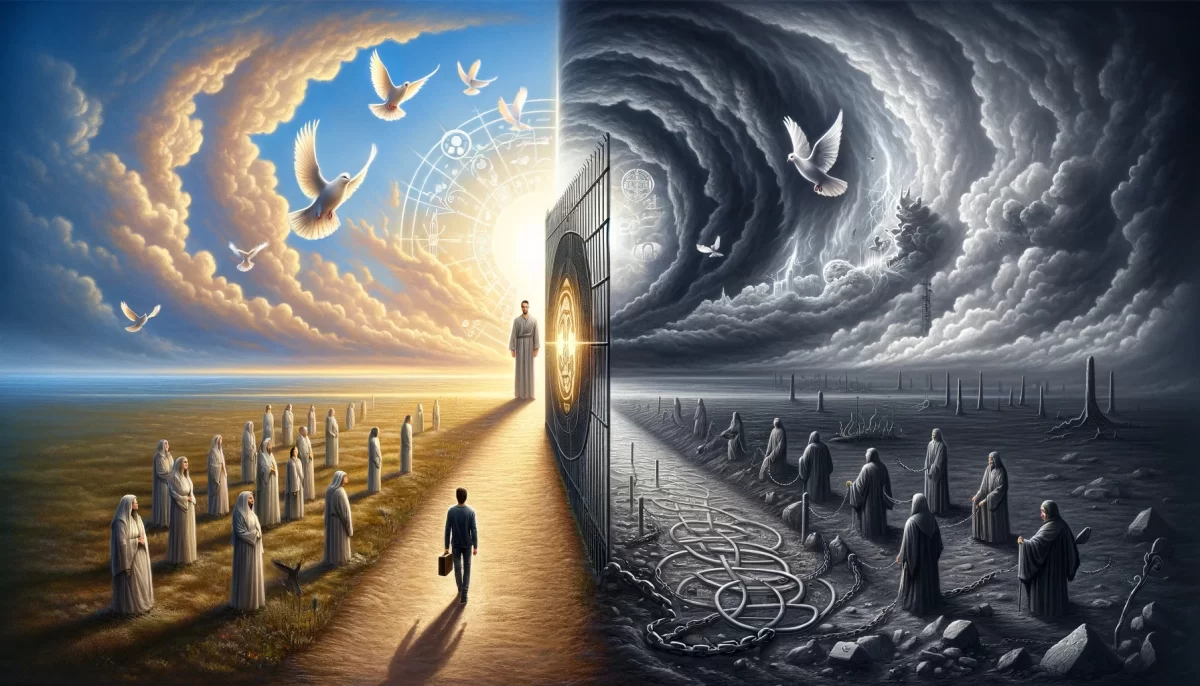
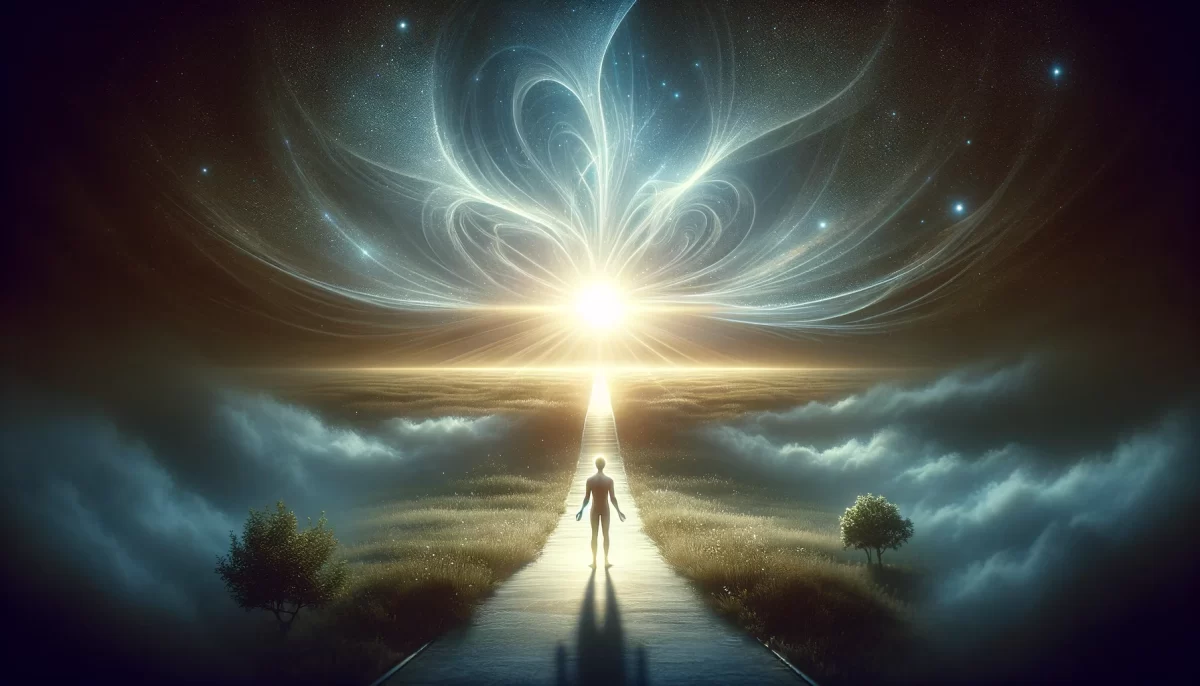
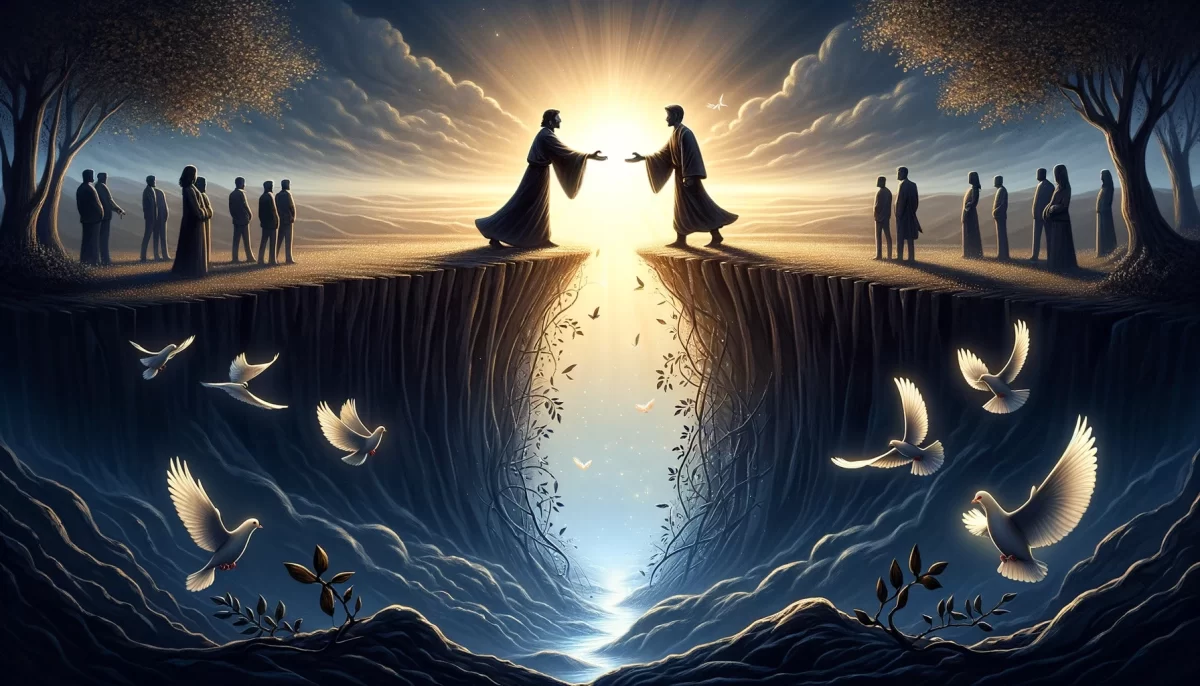
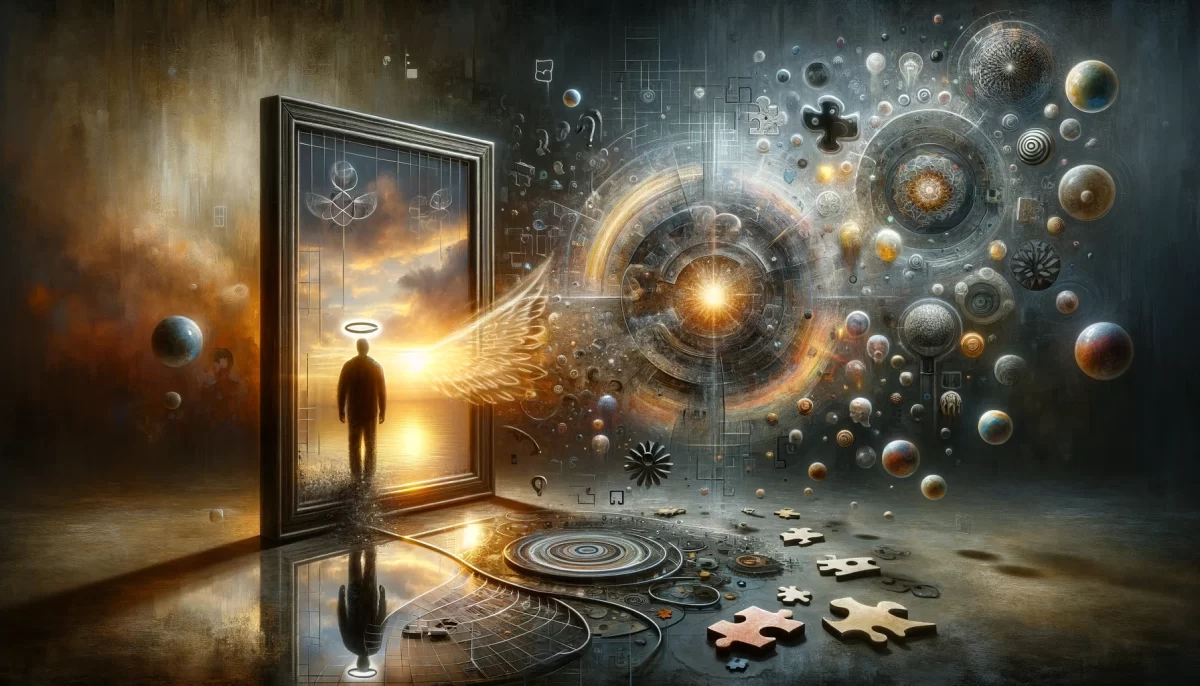
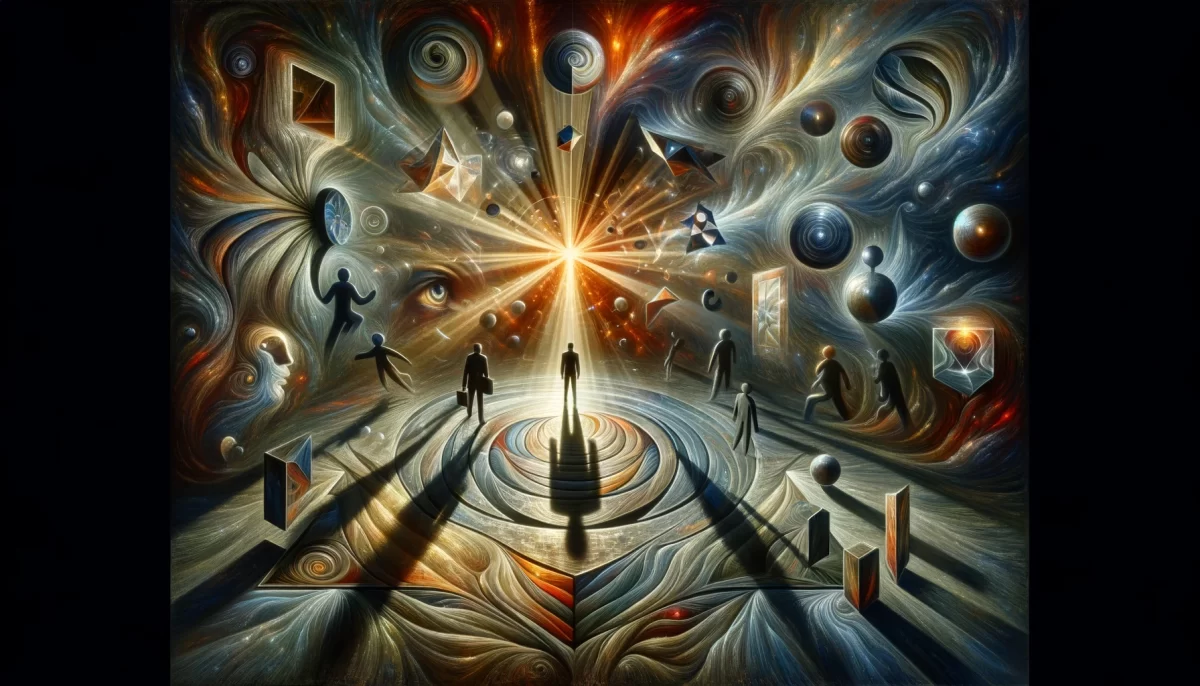
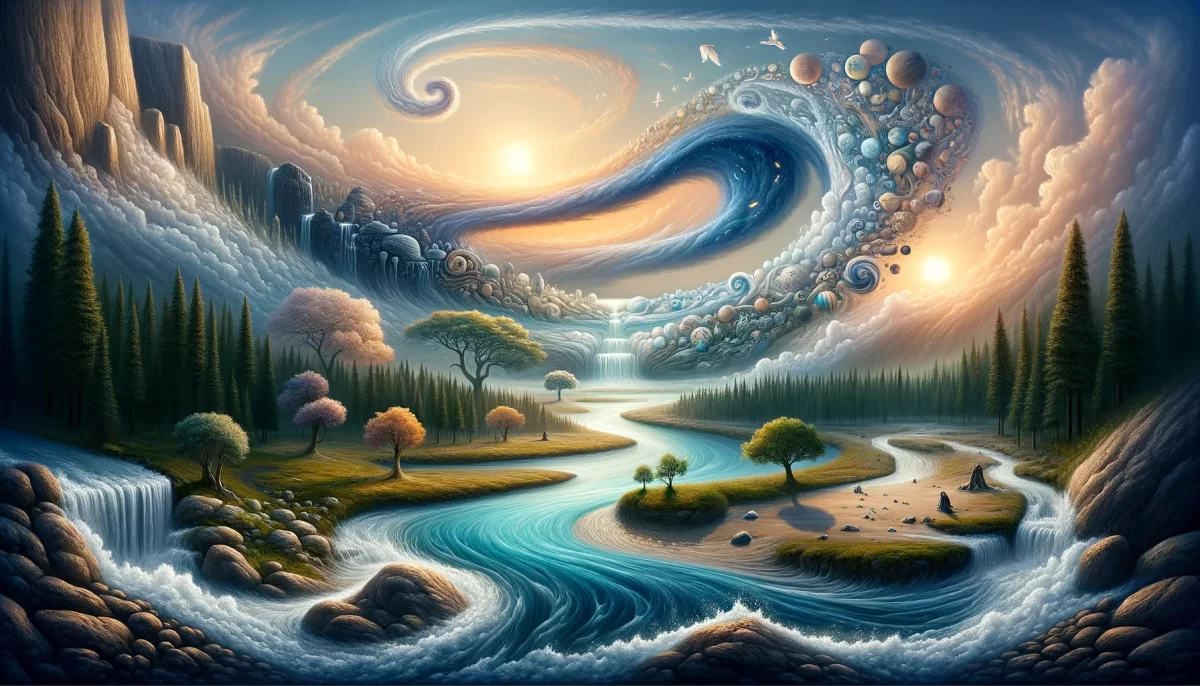
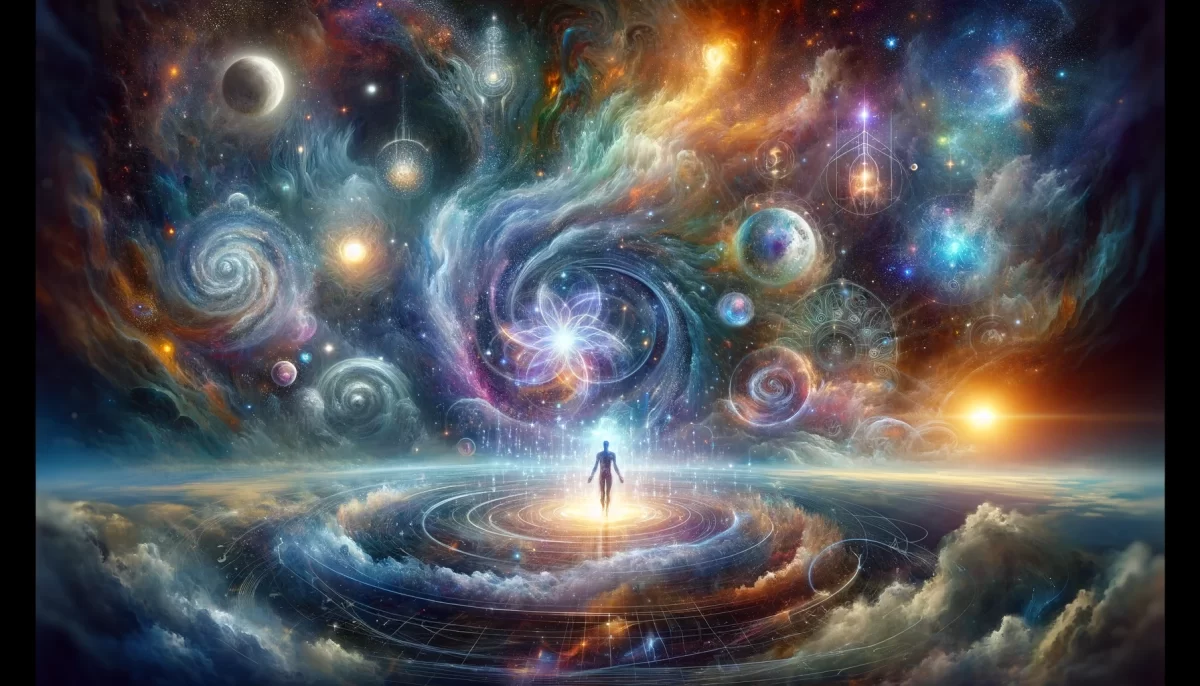

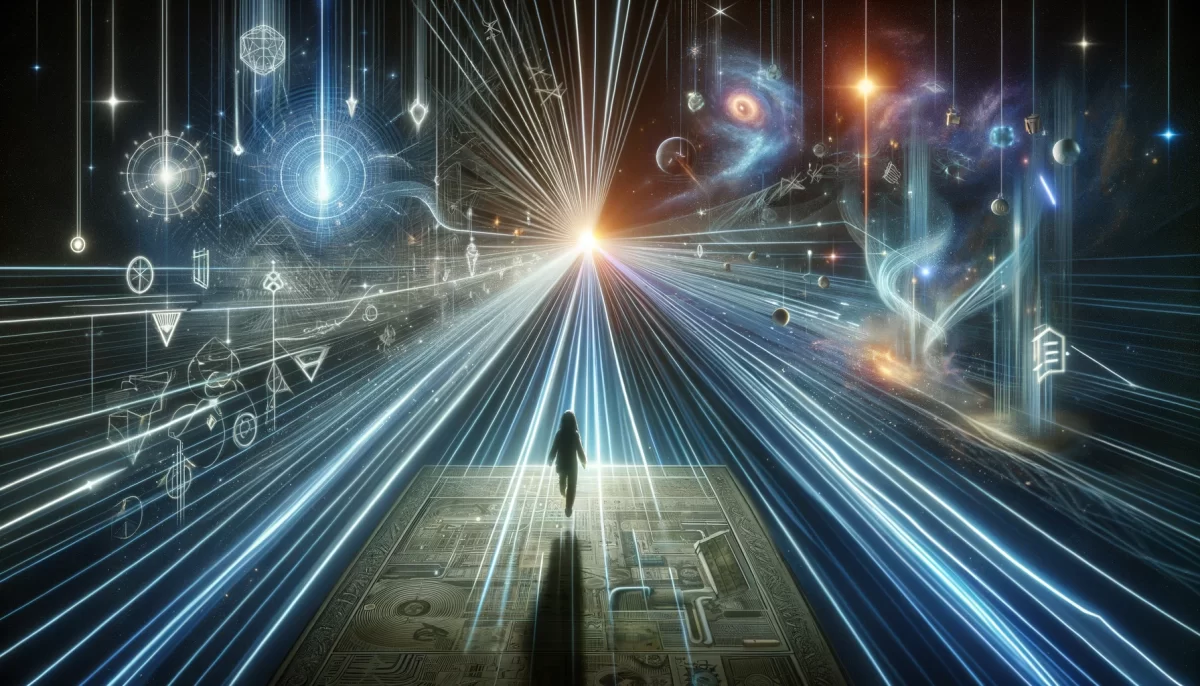
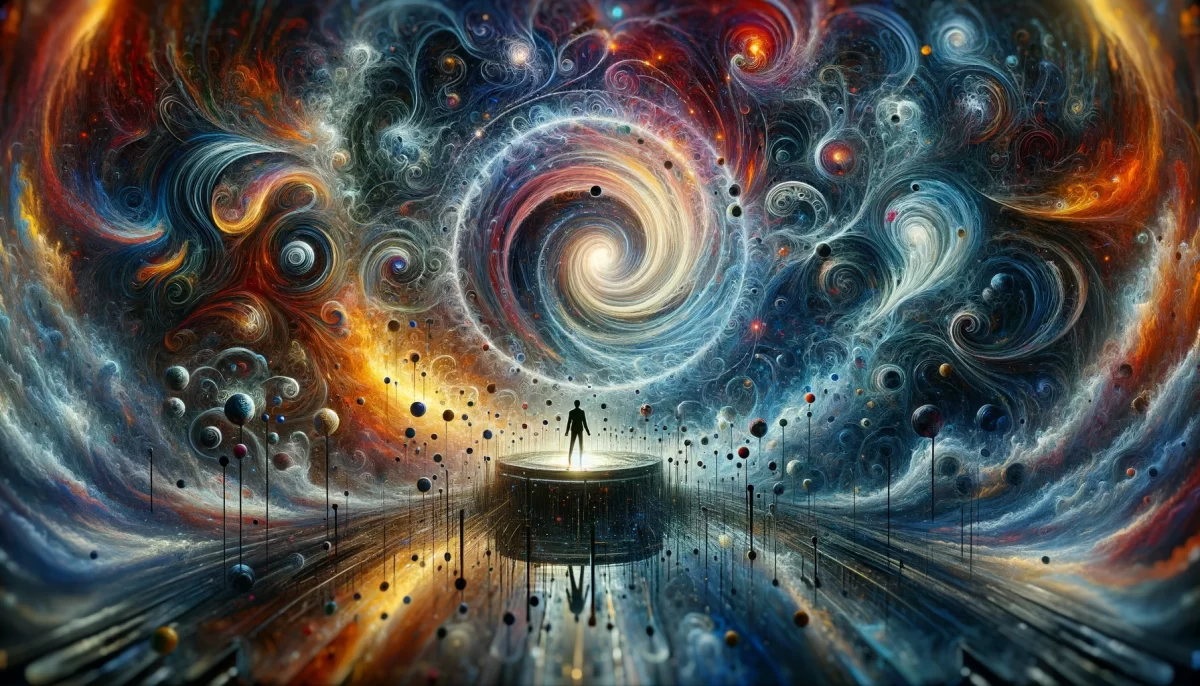
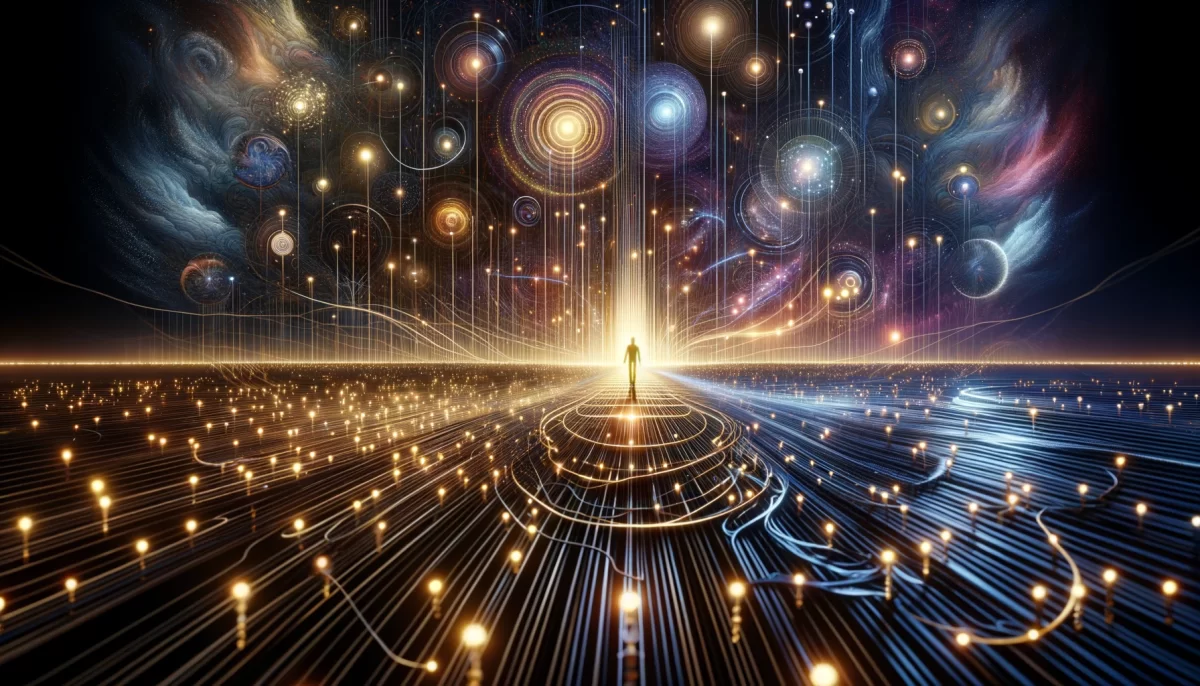
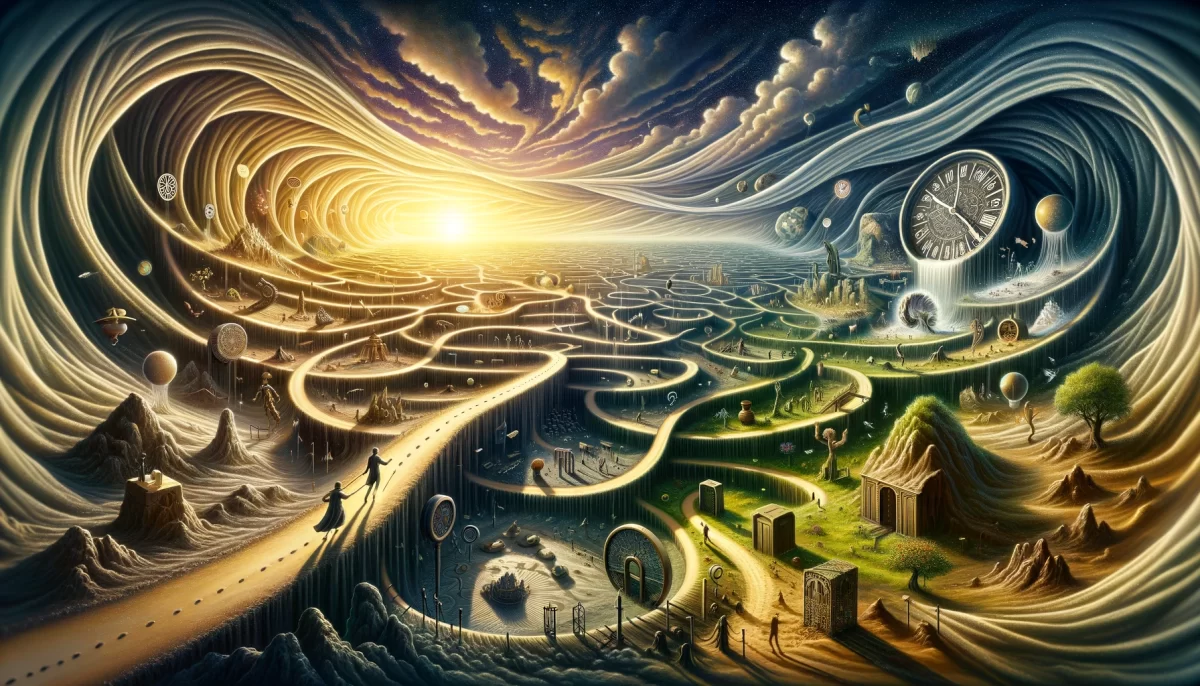
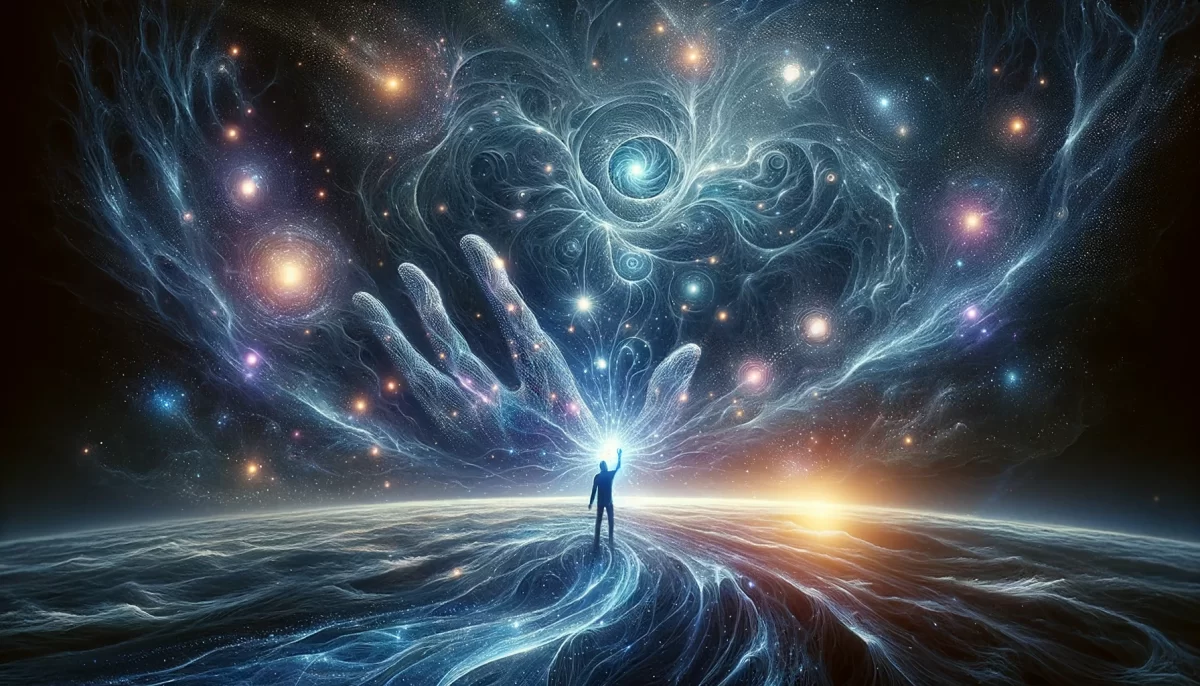
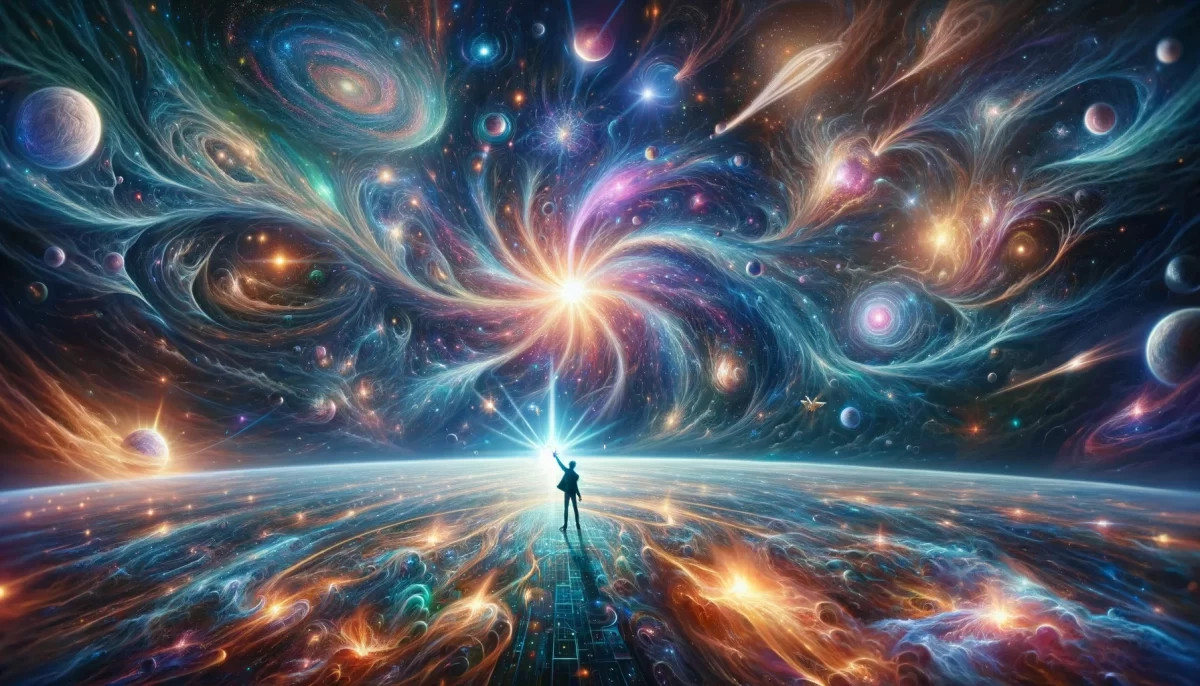
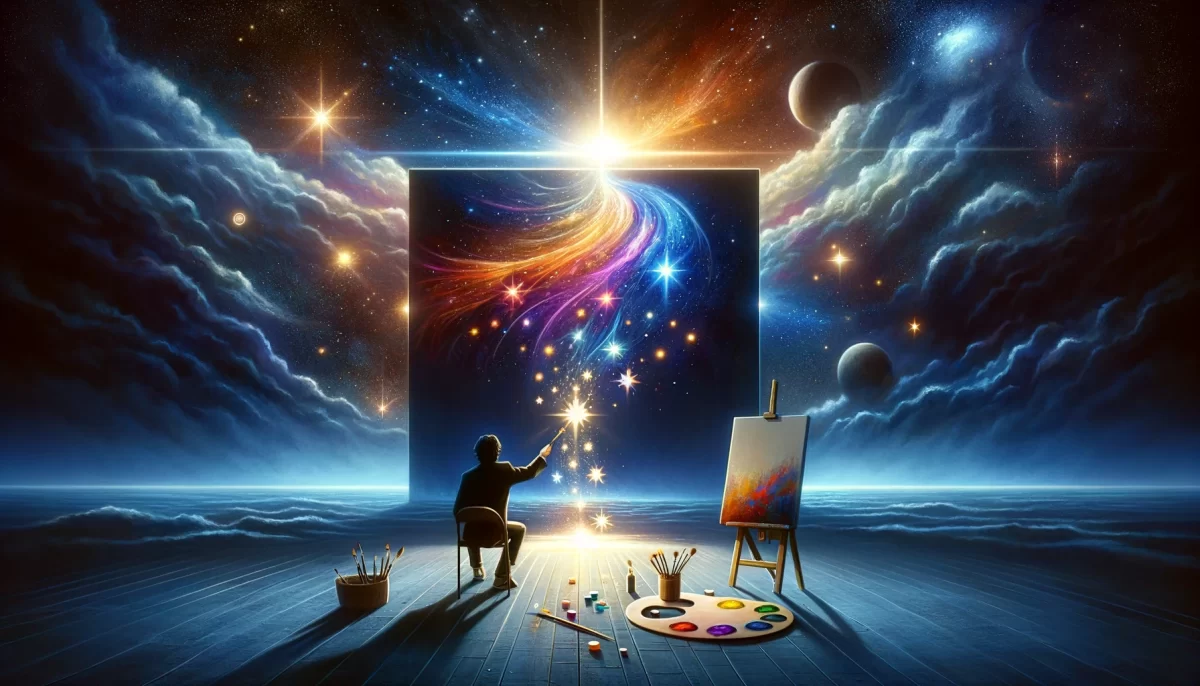
Leave a Reply